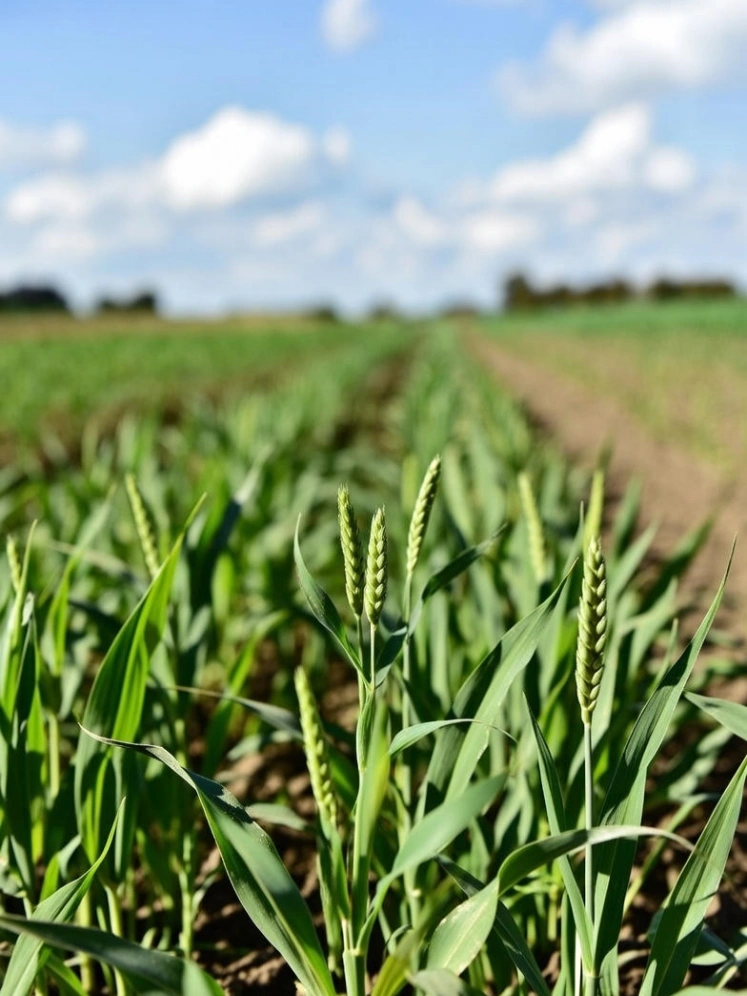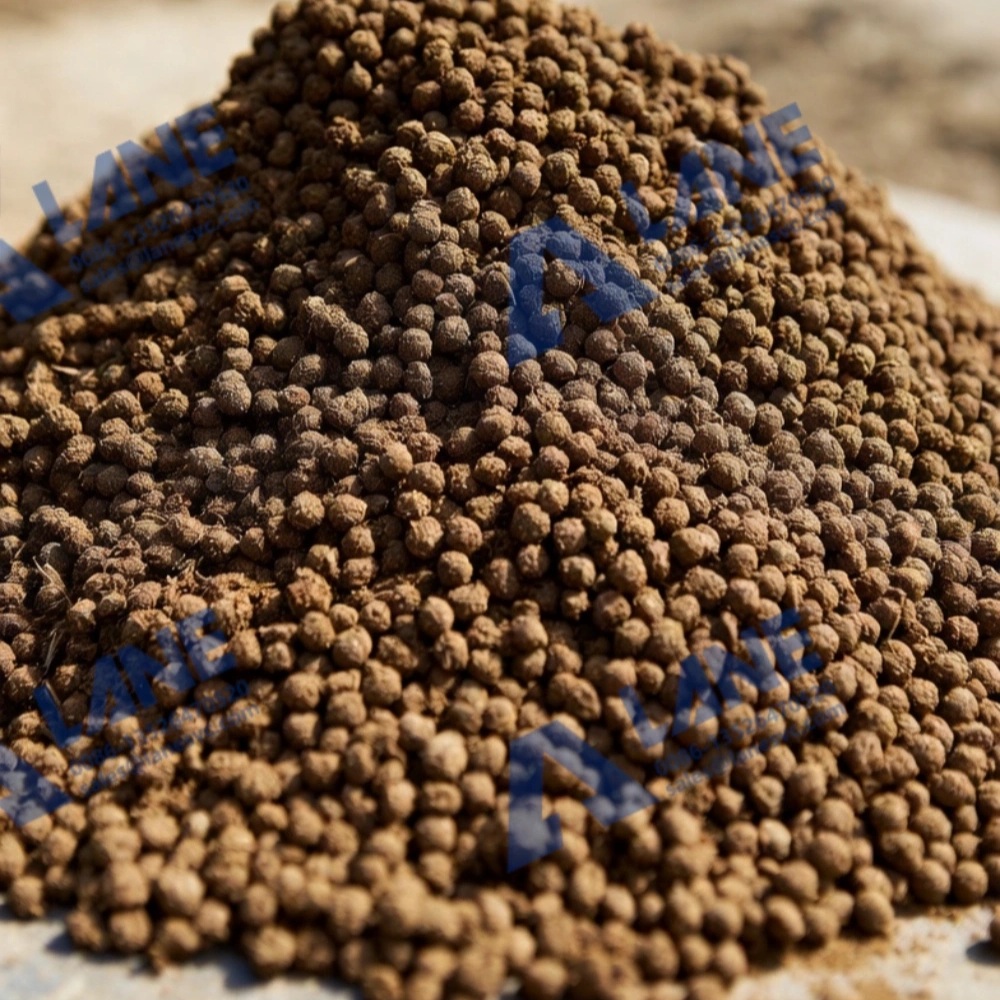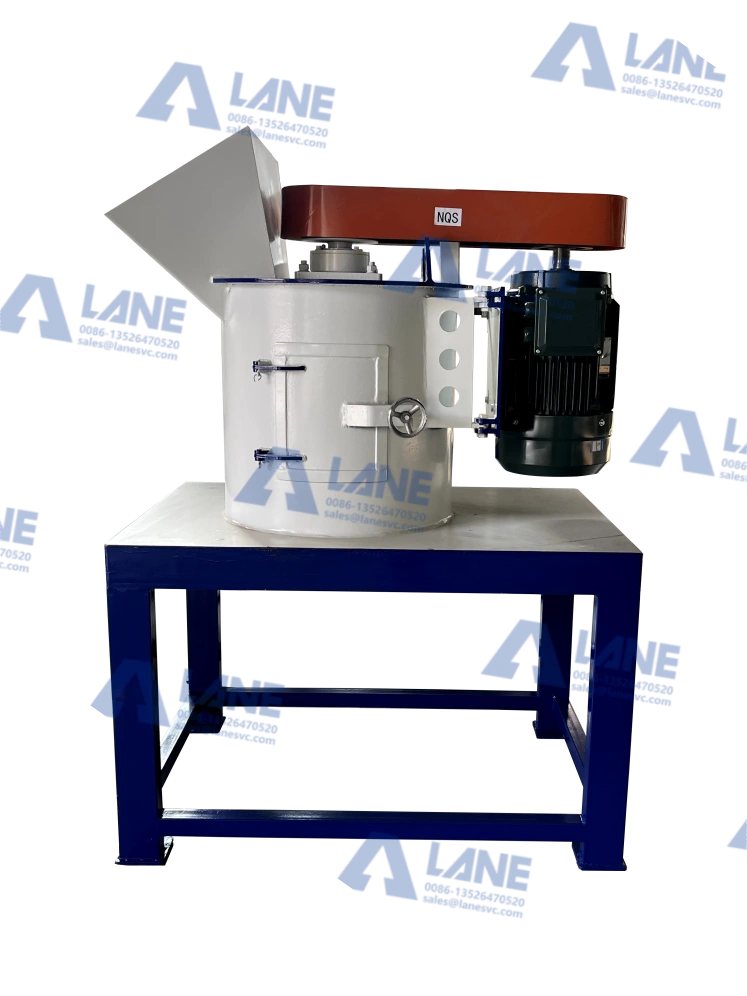Organic fertilizer for cash crops is gaining strong global attention as farmers seek sustainable, high-yield solutions that enhance soil fertility while reducing chemical dependence. Unlike synthetic fertilizers that provide a quick nutrient fix but degrade soil over time, organic fertilizers restore soil biology, improve nutrient efficiency, and help farmers achieve long-term productivity—especially for high-value cash crops like coffee, cocoa, cotton, fruits, vegetables, and sugarcane.
This article explores the benefits, key materials, and production process of organic fertilizer for cash crops, and introduces how advanced equipment and production lines from LANE Heavy Industry help modern agriculture transition toward greener, more profitable operations.

Why Cash Crops Need Organic Fertilizer
Cash crops are cultivated primarily for sale and export rather than local consumption, meaning their profitability depends on high yield, consistent quality, and market appeal. Many of these crops—such as cocoa, coffee, and tea—are grown in nutrient-demanding tropical soils that have suffered depletion from overuse of chemical inputs.
Organic fertilizers, made from animal manure, compost, crop residues, and bio-fermented materials, provide a slow and balanced release of nutrients that support long-term fertility. They improve soil structure, microbial activity, and moisture retention, which are essential for the steady development of deep-rooted, high-value plants.

Key benefits include:
Enhanced soil fertility: Organic matter rebuilds humus, increases cation exchange capacity, and boosts microbial diversity.
Sustainable yield improvement: Continuous use enhances root health and nutrient uptake efficiency.
Reduced dependence on chemical inputs: Farmers can gradually replace costly and environmentally harmful fertilizers.
Better crop quality: Crops grown with organic inputs tend to have stronger aroma, taste, and shelf life—critical for export markets.
Main Raw Materials Used in Organic Fertilizer for Cash Crops
Different regions adapt their organic fertilizer formulas according to available resources and target crops. Common raw materials include:
| Material Type | Examples | Benefits |
| Animal manure | Cow dung, chicken litter, goat manure | High nitrogen and phosphorus content, improves soil texture |
| Compost from plant residues | Crop straw, leaves, fruit waste | Increases organic matter and microbial activity |
| Bio-fermented liquids | Fish protein hydrolysate, soybean meal extract | Provides soluble nutrients and plant growth stimulants |
| Mineral additives | Rock phosphate, gypsum, zeolite | Enriches trace minerals and stabilizes pH |
These materials undergo controlled composting and fermentation to convert waste into nutrient-rich fertilizer ready for agricultural use.
Production Process of Organic Fertilizer for Cash Crops
Modern production lines, such as those developed by Henan LANE Heavy Industry, combine efficiency with environmental responsibility. A typical process includes the following steps:
1.Raw Material Collection and Mixing
All inputs (manure, straw, residues) are collected and blended in a horizontal mixer to achieve the proper carbon-to-nitrogen ratio (C/N 25–30).
2.Composting and Fermentation
Using equipment such as crawler-type compost turners or wheel-type compost machines, materials are aerated and decomposed for 15–25 days. During this stage, harmful pathogens and weed seeds are eliminated.
3.Crushing and Screening
After fermentation, the semi-finished compost is crushed by an vertical shaft crusher and screened to remove impurities or oversized particles.

4.Granulation
The powdered material is processed in a granulator machine—commonly a disc granulator or new type organic fertilizer granulator—to form uniform granules suited for mechanized application.
5.Drying and Cooling
Granules are passed through a rotary dryer and cooler to remove moisture and stabilize the final product.
6.Packaging and Storage
Finished fertilizer is weighed, packed, and stored for distribution to cash crop growers.
Case Study: Organic Fertilizer for Coffee and Cocoa Farms
In tropical countries like Indonesia, Nigeria, and the Philippines, organic fertilizer has become an essential input for high-value coffee and cocoa cultivation. Continuous use of chemical fertilizers had gradually degraded soil quality, leading many farmers to look for more sustainable alternatives.
A coffee cooperative in Indonesia partnered with Henan LANE Heavy Industry to build a 3–5 tons per hour organic fertilizer production line using local raw materials such as cattle manure, coffee husks, and cocoa shells. The system included a crawler-type compost turner, granulator, rotary dryer, and automatic packaging machine—forming a complete, efficient production process.
After switching to organic fertilizer, the farms saw an average 20% increase in yield and better bean quality. The soil retained more moisture and showed improved biological activity, reducing dependence on costly imported fertilizers.
Farmers also benefited economically by turning waste into profit, selling part of the fertilizer to neighboring plantations. The project not only supported sustainable agriculture but also created new income opportunities and strengthened local environmental awareness.
Advantages of Using LANE’s Organic Fertilizer Equipment
LANE has extensive experience in designing and exporting fertilizer production systems tailored for agricultural and industrial use. Their solutions stand out for several reasons:
Customizable production capacity (from 1 to 30 tons per hour).
Durable materials, including anti-corrosion steel and energy-efficient designs.
Easy operation and maintenance, reducing labor requirements.
Technical guidance and installation support provided by experienced engineers.
These advantages make LANE a trusted partner for agribusiness investors and agricultural cooperatives developing organic fertilizer plants for cash crops worldwide.
The use of organic fertilizer for cash crops represents a sustainable pathway for improving profitability, soil resilience, and long-term productivity. By shifting from chemical-based farming to organic nutrient management, farmers not only protect the environment but also enhance crop quality and international competitiveness.
With advanced manufacturing capabilities and global project experience, LANE Heavy Industry provides reliable solutions for anyone looking to establish an organic fertilizer production line dedicated to cash crops.
For more details, please feel free to contact us.
Henan Lane Heavy Industry Machinery Technology Co., Ltd.
Email: sales@lanesvc.com
Contact number: +86 13526470520
Whatsapp: +86 13526470520